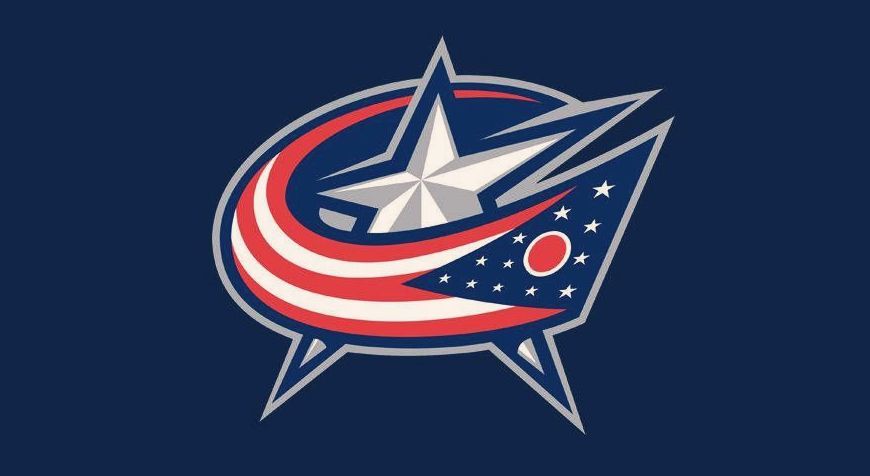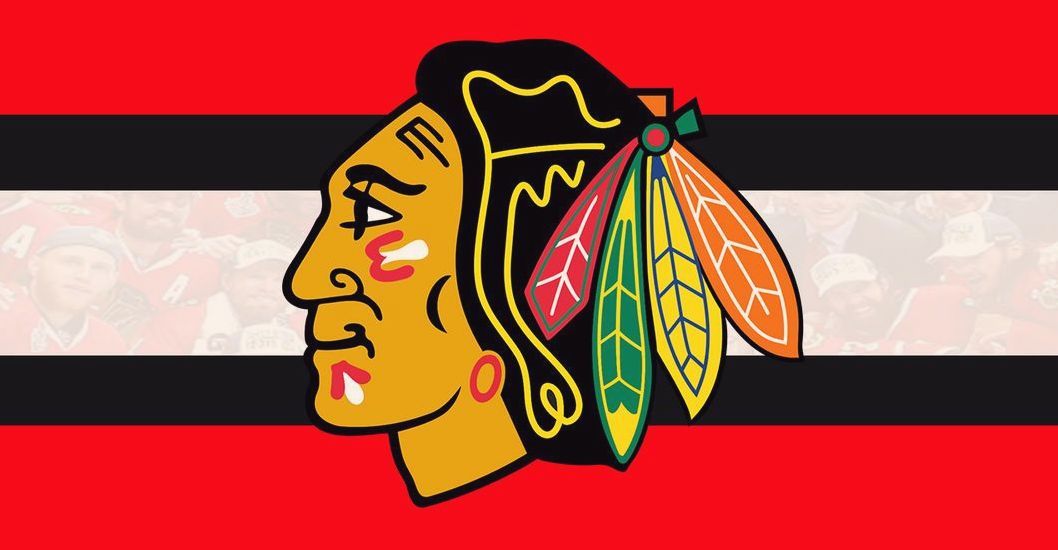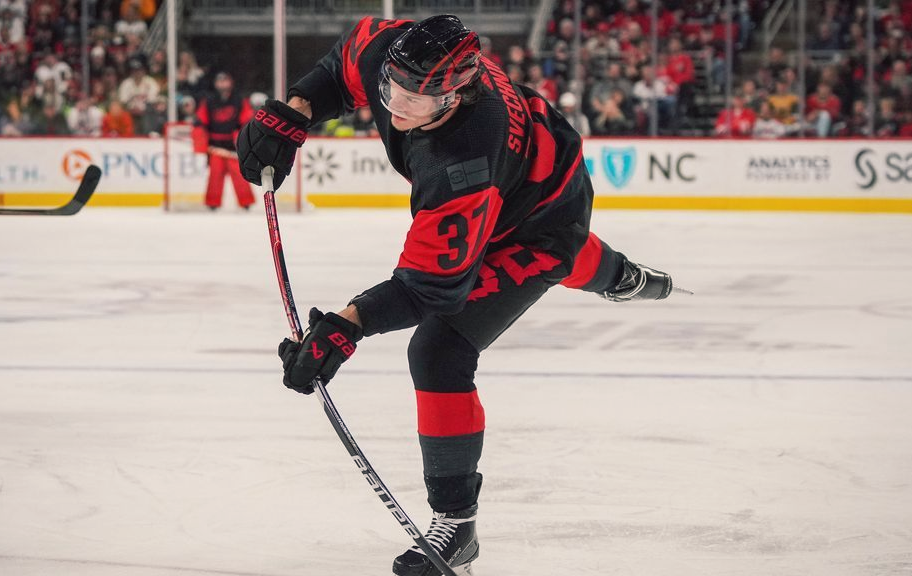Western Conference Playoff Update
Welcome to the second edition of the Beerly Hockey playoff update! The first round has concluded, and after last week’s article provided mid-series summaries of each Eastern Conference matchup, this week we’ll take a look at the results from the West. We’ll kick things off with a historic upset as the new kids on the block knocked off the defending cup champions in a sensational game 7.
Colorado Avalanche vs Seattle Kraken
Seattle Advances 4-3
Round 2 Game 1: Tuesday 5/2 @ Dallas
| Key Stats | Avalanche | Kraken |
|---|---|---|
| Total Goals | 19 | 18 |
| Power Play | 2/18 (11.1%) | 3/21 (14.3%) |
| Leading Scorer | Mikko Rantanen (7-3-10) | Yanni Gourde (1-5-6) |
The determining factor of this series was depth, with Seattle showing everyone that star power isn’t everything. Colorado didn’t have much to offer beyond the top line of Nathan MacKinnon, Mikko Rantanen, and Artturi Lehkonen, with only 4 other forwards finding the scoresheet through 7 games. Their star studded defense did what they could to contribute, and Devon Toews stepped up admirably with 9 points to pick up the slack of an injury hampered (and briefly suspended) Cale Makar, but ultimately they couldn’t outlast the relentless waves of talent Seattle kept sending over the boards.
Throughout this series, 15 different Kraken players scored a goal and 18 recorded at least a point, with no forward averaging more than Yanni Gourde’s 20:22 of ice time. This allowed head coach Dave Hakstol to keep fresh legs on the ice and dictate a breakneck pace of play that wore down the Avs’ elite talent and feasted on their supporting players. By comparison, Colorado only had 9 different goal scorers, and only 12 of their skaters recorded a point in the series. Every single one of their 29 goals were scored or assisted by either Mackinnon, Rantanen, Makar, or Toews, and when those guys weren’t on the ice the Avs were utterly lifeless. These numbers illustrate just how much they missed injured captain Gabriel Landeskog as well as second line stars Nazim Kadri and Andre Burakovsky, who left for free agency as a result of Colorado’s cramped salary cap (Burakovsky actually signed with Seattle but didn’t see the ice in this series due to a lower body injury).
The fact that this series even made it to 7 games is a testament to the greatness of the Avs’ big 4, and it looked like they might find a way to drag a roster full of dead weight to the second round after going God-mode in game 6. Unfortunately for them, they couldn’t get any help against the 18 man attack of Seattle, and in game 7 the Kraken became the first team in NHL history to eliminate the defending cup champions in their inaugural playoff series thanks to team speed, responsible defense, and 2 goals from streaky sniper Oliver Bjorkstrand who is earning a reputation as a big game performer.
Aside from their depth and ability to outlast the Avs at even strength, Seattle’s special teams stepped up to play a huge role in this series. Their power play wasn’t spectacular, although they did score two massive goals in a pivotal game 4 to deliver an overtime victory and tie the series, but their penalty kill was incredible. After looking like a glaring weakness throughout the regular season (they ranked 21st in the league with a 76.69% success rate) they stepped up when it mattered most, stifling Colorado’s 6th ranked power play with speed, pressure, and aggressive reads to hold the high flying Avs to 2 goals on 18 opportunities and even score a goal of their own in the process.
One final note on this series: you have to be happy for Philipp Grubauer, who found his form down the stretch after a rough year and a half in Seattle. He was spectacular in all 7 games, saving 214 of 231 Avalanche shots for a .914SV% and a 2.44 goals against average to anchor the upset of his former team. Hopefully this series can serve as a springboard, as he’ll need to be sharp against a Dallas team that oozes offensive firepower throughout their lineup.
Vegas Golden Knights vs Winnipeg Jets
Vegas Advances 4-1
Round 2 Game 1: Wednesday 5/3 vs Edmonton
| Key Stats | Golden Knights | Jets |
|---|---|---|
| Total Goals | 19 | 14 |
| Power Play | 3/16 (18.75%) | 5/12 (41.7%) |
| Leading Scorer | Chandler Stephenson (4-4-8) & Mark Stone (3-5-8) | Niel Pionk (0-7-7) |
After battling all year just to make the postseason, the Jets showed the value of playing meaningful games down the stretch. They spent the final weeks of the season fending off Calgary and Nashville for the final wildcard spot, and were already acclimated to the intensity of playoff hockey when the puck dropped in game 1. Vegas had no such experience this spring, having secured a top spot in the conference long before the series started, and it was obvious on the ice. Winnipeg smacked them in the mouth, winning every puck battle and outshooting the Knights 31-17 on their way to a 5-1 victory. Unfortunately for the Jets, that pounding seemed to wake up the Western Conference champs and it was all downhill from there.
The following 4 games were examples of too much to not enough, and the Golden Knights had their way with an increasingly undermanned and eventually apathetic roster as they cruised to a gentleman’s sweep. Following the embarrassing opening game, Vegas outscored Winnipeg 18 to 9 and looked like a freight train pulverizing a rusty old pickup truck that had the misfortune of stalling out while crossing the tracks.
Injuries to top performers Mark Scheifle, Josh Morrisey, and Nikolaj Ehlers (who didn’t play until game 5) didn’t help, but this Jets team would have been doomed even with their services as the issues of inconsistency and lack of effort that plagued them all season reared their ugly heads. After a lifeless elimination game from Ehlers, Blake Wheeler, and Pierre Luc Dubois (who seemed to be more focused on where he’ll be playing in the future than contributing to his current team), head coach Rick Bowness could no longer contain the frustrations that had been building since February and unleashed them in a scathing tirade during his postgame press conference, saying he was “disappointed” and “disgusted” and that “their better players were so much better than ours, it’s not even close”. Needless to say, it will be an interesting offseason in Winnipeg.
While it’s easy (and fun) to pile on the Jets for proving me right (can you believe I was ridiculed when I picked Vegas to win in 5? Look who’s laughing now!) I have to take a minute to recognize how good the Golden Knights really were in this series. Despite my feelings about the way Bruce Cassidy treats his players (take a look at his time in Washington for the most egregious examples), I have to give credit where it’s due: the man knows how to win hockey games.
People questioned his decision to roll with a goalie who had never played more than 24 games in a season or started a single playoff game instead of Conn Smythe winning veteran Jonathan Quick, but Lauren Brossoit made him look like a genius with his .915SV% and 2.42 goals against average.
Even more questions were raised when Cassidy health bombed reigning NHL ironman Phil Kessel, sending the two time cup champion and his 83 points through 100 games of postseason experience to the press box in favor of 4th line grinder William Carrier who hadn’t seen game action since March 3rd. Once again, the hard nosed coach’s controversial decision paid off as Carrier was a menace on the forecheck, disrupting the Jets’ breakouts and sapping their spirit as he led all Golden Knights with 6 bone crushing hits.
Vegas couldn’t really count on their special teams in this series (they were mediocre on the man advantage and their penalty kill was pathetic, allowing the Jet’s 23rd ranked power play to convert at an eye popping 41.7%) but they honestly didn’t need to because they were so dominant at even strength. Their depth was an obvious advantage as they rolled four lines to overwhelm Winnipeg, highlighted by scoring sensation Chandler Stephenson sharing the team lead of 8 points with captain Mark Stone while centering the 3rd line. 2nd line center William Karlsson tied Stephenson’s 4 goals to lead the team, while last season’s star acquisition Jack Eichel played at a point per game pace in the first playoff action of his career, highlighted by a dominant game 3 performance in which he scored 2 goals, assisted on another, and pumped 7 shots on net. Talent down the middle is arguably the most important characteristic of cup contending teams, and Vegas has that in spades. I can’t wait to see how they match up against Edmonton.
Dallas Stars vs Minnesota Wild
Dal Advances 4-2
Round 2 Game 1: Tuesday 5/2 vs Seattle
| Key Stats | Stars | Wild |
|---|---|---|
| Total Goals | 21 | 14 |
| Power Play | 9/24 (37.5%) | 4/22 (18.2%) |
| Leading Scorer | Roope Hintz (5-7-12) | Zuccarello, Hartman, Nyquist (Tied with 5pts) |
There was so much vitriol in this series, it’s hard to tell where it was most potent: from the hatred between the two teams, to the hatred from the fans in Minnesota toward longtime Wild defenseman turned Dallas Star Ryan Suter, to the hatred from Stars fans and players toward Matt Dumba for his hit that knocked Joe Pavelski out of the series. While those are all strong contenders, I’m going with the obvious choice here: the unrivaled animosity between the officials and Wild forward Marcus Foligno.
The prominent power forward has always played with a nasty edge, and it’s one of the reasons he’s so valuable to this Minnesota team. Occasionally he’ll cross the line with a dirty hit or malicious cross check, earning a justified trip to the penalty box in the process, but even the most die-hard Dallas fan has to admit that he was unfairly targeted by the stripes in this series. Foligno accumulated 35 penalty minutes through only 6 games, including two egregious phantom calls for tripping and interference in game 4 (Dallas scored on both ensuing power plays, which effectively won them the game as the final score was 3-2).
Foligno went on to lambast the officials for targeting him in the postgame presser, calling the penalties “bullshit” and the referees “arrogant”. Apparently they took offense to these comments, as they were all too eager to call a 5 minute major and a game misconduct on Foligno early in game 5 after he laid an awkward hit on Radek Faksa that resulted in a knee-on-knee collision. I’ll be honest, I initially thought this was an intentionally dirty play by Foligno, as I was bombarded by flashbacks of his egregious knee-on-knee hit that injured Jake Voracek last season. However, after re-watching the play from a few angles it was clear to me that Foligno took a clean angle towards Faksa, who rotated to reach behind him for the puck at the last second, moving his leg directly into Foligno’s path with no time for the massive American to avoid it. The officials had the opportunity to review those same angles after calling the penalty, but chose to let it stand and made Foligno pay for his scathing remarks by tossing him from the game.
In a first round featuring some of the worst calls we’ve seen in years (you don’t have to take my word for it, there are well respected media members all around the league documenting how exceptionally bad it’s been across every series) the targeting of Foligno has been the most glaring stain on the filthy old smock that is NHL officiating.
While Foligno’s unfair treatment is a hot topic, it’s not the primary reason Minnesota bowed out in 6 games. They were missing a huge piece in reliable two-way center Joel Eriksson Ek, and an injury to Ryan Hartman turned an already shaky center ice position into a downright liability. To make matters worse, Kiril Kaprizov was not himself, as he was clearly still finding his offensive touch after missing the end of the season with a lower body injury, and their big name deadline addition John Klingberg didn’t produce enough offense to offset the incompetence that plagued him in his own end.
If it weren’t for contributions from underrated utility forwards Marcus Johansson and Gustav Nyquist (both also acquired at the trade deadline) this could have been a far shorter series, as they both stepped up to produce when called upon. Filip Gustavsson was good in net as well (when given the opportunity) but Dallas’ scoring depth and the greatness of Jake Oettinger between the pipes were too much for this depleted Wild roster to overcome.
With Pavelski out, head coach Pete Deboer tapped veteran sniper Tyler Seguin to fill his shoes on the top line and first power play unit, and he exceeded expectations with a stat line of 4g-2a-6pts thanks to instant chemistry with superstars Jason Robertson and Roope Hintz. On the back end, Miro Heiskanen supplemented his usual steady defensive play by continuing his offensive outburst from the regular season, piling up 6 assists while averaging over 29 minutes of ice time per game.
While Dallas was good at even strength, their elite special teams were what really buried Minnesota. Their 3rd ranked penalty kill was as advertised, eliminating 81.2% of Wild opportunities. Their power play, ranked 5th in the NHL this year at 25%, absolutely exploded to convert on 37.5% of their numerous opportunities as the Wild couldn’t seem to stay out of the box. While I agree with many Wild fans that the refs are partially responsible for the result of this series, Dallas deserves credit for capitalizing on their chances and it’s hard to argue they were the better team from top to bottom.
Edmonton Oilers vs Los Angeles Kings
Edmonton Advances 4-2
Round 2 Game 1: Wednesday 5/3 @ Vegas
| Key Stats | First Name | Last Name |
|---|---|---|
| Total Goals | 25 | 20 |
| Power Play | 9/16 (56.3%) | 7/21 (33.3%) |
| Leading Scorer | Leon Draisaitl (7-4-11) | Adrian Kempe (5-3-8) |
If you thought Dallas had an efficient power play, just take a look at the globetrotters in Edmonton. This was a historically great unit in the regular season, setting an NHL record by clicking at 32.4% through 82 games. They followed that up by going supernova in the playoffs, converting on over half of their opportunities in the first round and sending the kings home after 6 hard fought games.
This unit features the two best offensive players on the planet in Connor McDavid and Leon Draisaitl, an absolute puck hound with hands to finish around the net in Zach Hyman, an incredibly efficient bumper in Ryan Nugent-Hopkins, and a intercontinental ballistic missile launcher from the point in Evan Bouchard. Good luck surviving 2 minutes against those guys.
The Kings clearly emphasized the importance of keeping this unit off the ice, as they only took 16 trips to the box through 6 games, but that was all the Oilers needed to pump their way through the first round and advance past a formidable opponent in Los Angeles.
The first 4 games of the series were incredibly close, with 3 of them going to overtime and each team stealing a win on the road. Kings coach Todd McLellan put together a perfect game plan, organizing an effective 1-3-1 neutral zone trap to slow down Edmonton’s rush offense and stapling shut-down centers Anze Kopitar and Phillip Danault to McDavid and Draisaitl. The Kings prioritized patience without the puck and quick counterattacks, and leaned on their own potent power play (Edmonton’s still dwarfs it but let’s not forget that 33.3% is pretty damn good) along with a lucky break on a video review of Trevor Moore’s overtime winner in game 3 (I’m still convinced that was a high stick) to arrive at game 5 tied 2-2.
Unfortunately for LA it’s impossible to contain the Oilers forever, and with the addition of reliable blueliner Mattias Ekholm and league average goaltending from Stuart Skinner, it’s a hell of a lot harder to outscore them than it used to be. Edmonton gradually found holes in the Kings’ defensive structure, and by the time McLellan adjusted to a more aggressive system it was too late.
The momentum had shifted, their centers were exhausted from mirroring McDavid, and despite the best efforts of Joonas Korpisalo (who was incredibly impressive between the pipes following his arrival at the trade deadline) the Oilers rolled to consecutive multi goal victories on their way to round 2.



